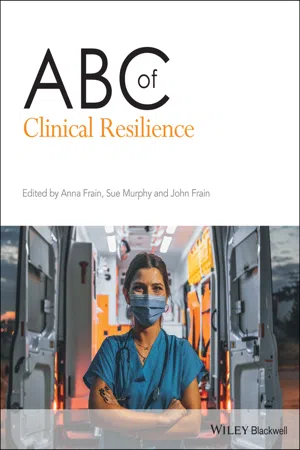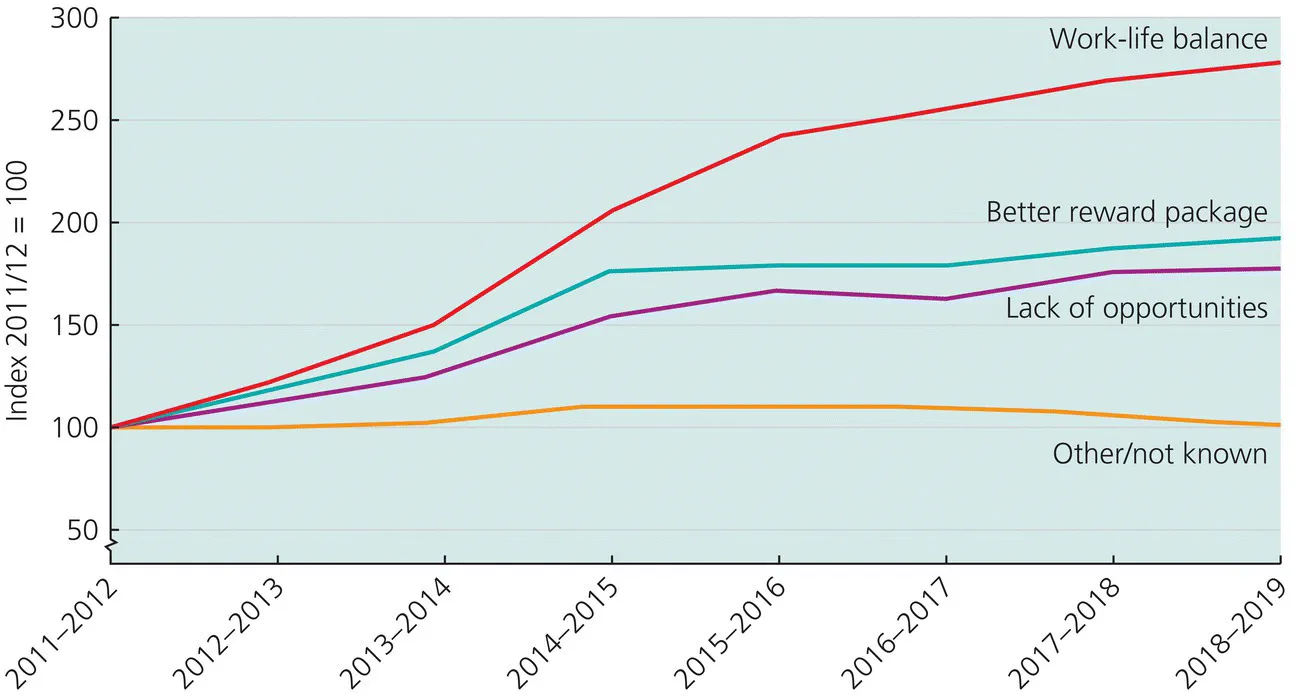
- English
- ePUB (mobile friendly)
- Available on iOS & Android
ABC of Clinical Resilience
About This Book
ABC of Clinical Resilience
ABC of Clinical Resilience
For the healthcare professional, clinical resilience is about reconnecting with those stirrings which first motivated us to spend a career in the service of others. It is about recovering and maintaining the???joy of practice??? which nourishes and satisfies our curiosity about the uniqueness of every person in our care. Being a resilient practitioner is essential for our personal wellbeing and also for the safety of our patients, who depend on our ability to optimise our physical and cognitive performance. Yet many healthcare professionals report experiencing burnout.
ABC of Clinical Resilience summarises current evidence on how cognitive performance and wellbeing of healthcare professionals are affected by the emotional context of providing care and the organisational culture of working environments. As well as considering impacts of individuals and teams, we also consider how resilience can be recovered for the benefit of everyone. Topics include:
- The emotional impact of working in healthcare
- Resilience and cognitive performance
- Practicing self-care
- The physiology of resilience
- Intelligent kindness
- Kindness in teams
- Resilience in practice
- Organisational kindness
- Teaching resilience
Perfect for both novice and experienced healthcare professionals, including those working in mental health, ABC of Clinical Resilience will also earn a place in the libraries of professionals who treat healthcare workers and readers interested in the psychology and prevention of burnout, vicarious trauma, and moral injury.
About the ABC series
The ABC series has been designed to help you access information quickly and deliver the best patient care, and remains an essential reference tool for GPs, junior doctors, medical students and healthcare professionals.
Now offering over 80 titles, this extensive series provides you with a quick and dependable reference on a range of topics in all the major specialties.
The ABC series is the essential and dependable source of up-to-date information for all practitioners and students in primary healthcare.
To receive automatic updates on books and journals in your specialty, join our email list. Sign up today at www.wiley.com/email
Frequently asked questions
Information
CHAPTER 1
Why resilience? Why now?
OVERVIEW
- Those entering healthcare professions are motivated by the potential ‘joy of practice’.
- Healthcare practitioners are being harmed by the impact of the systems in which they work.
- Burnout is an occupational hazard for all healthcare workers and increases the risks of both major and minor errors in caring for patients.
- Equality and inclusion in healthcare are not only morally right but enables all to fulfil their potential to improve patient outcomes and maintain practitioner well‐being.
- The Covid‐19 pandemic has brought into sharper focus the impact and current challenges of the working environment upon healthcare workers.
- Organisations have a duty of care to protect patient safety by supporting healthcare workers with intelligent kindness.
Introduction
‘First, do no harm’

Box 1.1 Suicide whilst under GMC's fitness to practise investigation: were those deaths preventable?
Table of contents
- Cover
- Table of Contents
- Title Page
- Copyright Page
- Contributors
- Preface
- CHAPTER 1:Why resilience? Why now?
- CHAPTER 2:Emotional Impact of Working in Healthcare
- CHAPTER 3:Resilience and Cognitive Performance
- CHAPTER 4:Practising Self‐care
- CHAPTER 5:The Physiology of Resilience and Well‐being
- CHAPTER 6: Intelligent Kindness: A Systemic Perspective on Resilience
- CHAPTER 7:Kindness in Healthcare Teams
- CHAPTER 8:Organisational Kindness
- CHAPTER 9:Resilience in Practice
- CHAPTER 10:Can We Really Teach Resilience, Intelligent Kindness and Compassion?
- Recommended Books, Articles and Websites
- Index
- End User License Agreement